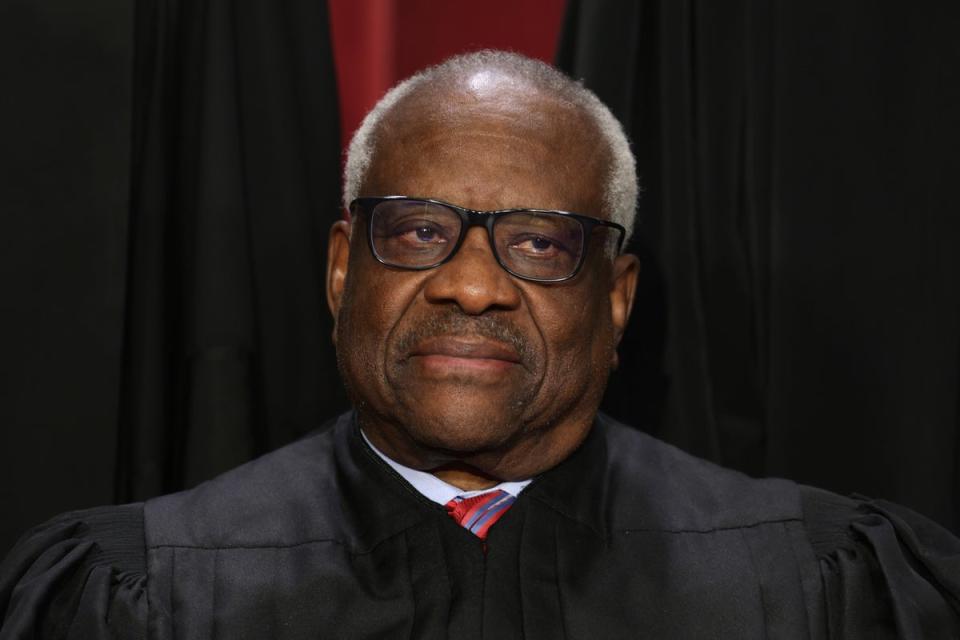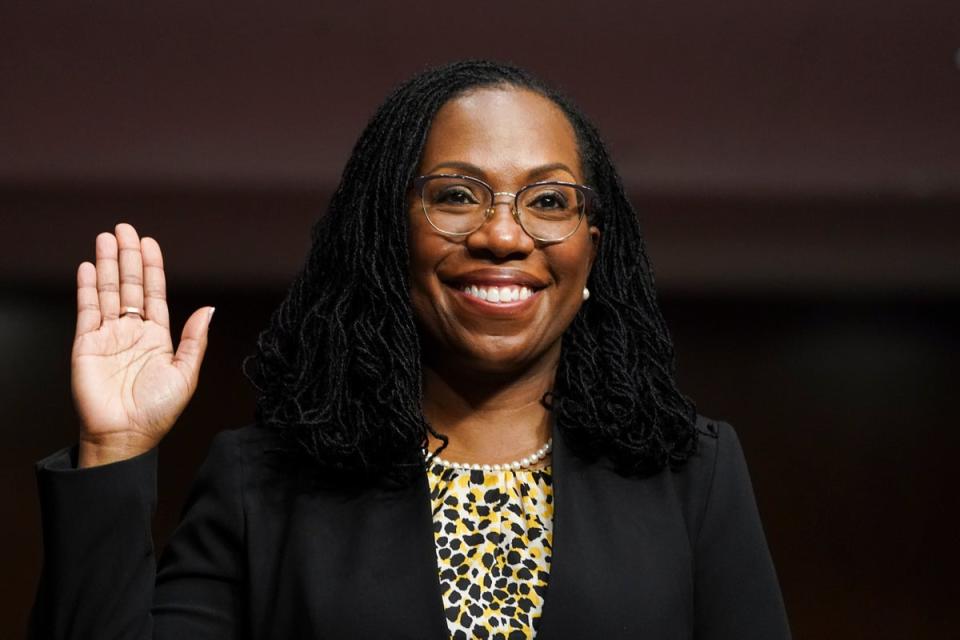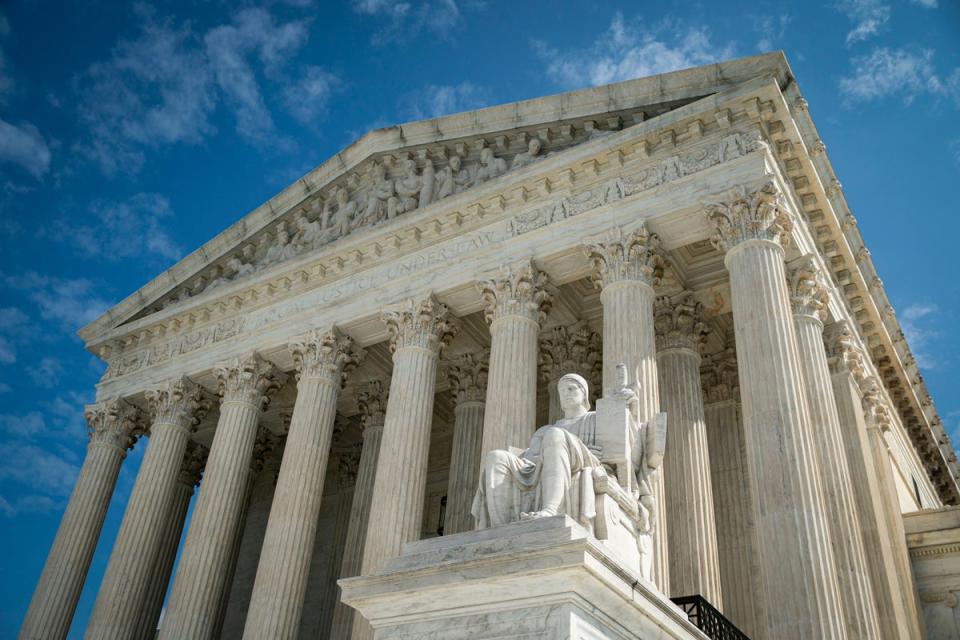Beyonce tickets, pricey artwork: All the free stuff Supreme Court justices got last year
The US Supreme Court is one of the last black boxes in American politics. No anonymous sources talking to the press. No secret videos recorded on the inside. What happens in the chambers when the nine justices meet to decide their cases remains strictly confidential.
However, annual disclosures from the high court judges do give us one peak into the world of SCOTUS: they get a ton of free stuff and plenty of big checks for their work off the bench. Far from a dull government disclosure form, these records are the latest bit of fodder for observers of a court that’s suffered a string of ethics controversies in recent years.
Released Friday, the disclosures capture the high-flying life of America’s top jurists.
Justice Clarence Thomas, for instance, amended his past disclosures to capture gifts from conservative billionaire Harlan Crow, who paid in 2019 for the justice to visit the Indonesian island of Bali and the Bohemian Grove, an elite men’s club in California.
He also disclosed free private jet travel he got in 2022, citing the court’s recently adopted ethics policy, a first-of-its-kind set of requirements for the high court adopted in November.

The justice has said he began flying private after the court suffered an unprecedented May 2022 leak of a draft ruling of the decision in which the court ultimately overturned the constitutional right to an abortion in Roe v Wade.
The disclosures contain other eye-popping figures.
Justice Kentanji Brown Jackson reported receiving four concert tickets from Beyoncé, valued at $3,700, and $10,000 in artwork for her chambers from artist Lonnie Holley.
“Justice Jackson is Crazy in Love with Beyoncé’s music. Who isn’t?” court spokeswoman Patricia McCabe told The Washington Post of the gift, referencing the pop star’s 2003 hit of the same name.
Justice Jackson also reported a nearly $900,000 dollar advance for an upcoming memoir.

Justice Sonia Sotomayor, meanwhile, reported $1,900 in earnings from the arts as well. She lent her voice to Alma’s Way, a PBS animated children’s show about a Puerto Rican girl from the Bronx, the jurist’s home borough.
No justice has been the subject of more scrutiny for his gifts than Thomas, though.
A recent analysis of financial gifts to Supreme Court members between 2004 and 2023 showed that the conservative justice raked in roughly $2.4m of the nearly $3m total current justices have received during that period.
“Supreme Court justices should not be accepting gifts, let alone the hundreds of freebies worth millions of dollars they’ve received over the years,” Gabe Roth, executive director at Fix the Court, the advocacy group that compiled the data, said in a statement to The Independent.
Over the years, Thomas flew multiple times on the private jet of billionaire Wayne Huizenga, and Crow paid $160,000 for a yacht cruise around the Greek isles.

Tax and property records show Crow also bought three parcels of land from the justice for $133,363 in 2014, including the one where Thomas’s mother currently lives.
In a statement to CNN, Crow said he bought the land so he could “one day create a public museum at the Thomas home dedicated to telling the story of our nation’s second black Supreme Court Justice”.
Thomas has defended his association with the conservative donor.
“As friends do, we have joined [ Crow and his wife] on a number of family trips during the more than quarter century we have known them,” Justice Thomas said of the trips in a statement last year.
The court has been dogged by ethics issues in recent years.
In the throes of the 2020 election, where the Supreme Court would eventually hear cases from Donald Trump challenging election results, Ginni Thomas, wife of Clarence Thomas, lobbied the White House to continue falsely claiming Trump won the contest.
“Help This Great President stand firm, Mark!!!” reads one message from November of that year she sent to Mr Trump’s chief of staff, Mark Meadows. “You are the leader, with him, who is standing for America’s constitutional governance at the precipice. The majority knows Biden and the Left is attempting the greatest Heist of our History.”
Such messages landed Ms Thomas in front of the congressional January 6 committee, where she denied exerting any improper influence over her husband’s work at the Supreme Court.
In 2011, Justice Thomas, under scrutiny from watchdog groups, updated years of disclosure forms to include the fact that Ms Thomas, a conservative activist, earned more than $686,000 in income from the right-leaning Heritage Foundation between 2003 and 2007, a discrepancy Mr Thomas attributed to “a misunderstanding of filing instructions.”
More recently, Justice Samuel Alito has come under fire, after an upside American flag was seen flying above his home in 2021, which some observers took to be a statement of allegiance to pro-Trump protesters challenging the validity of the 2020 election.
Alito says his wife flew the flag as part of a dispute with neighbors in which he had no part.


